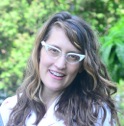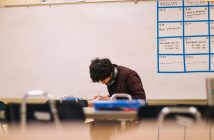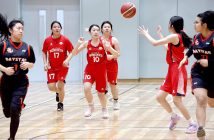For our new column, Ask an Educator, we turn to educators, whether teachers, tutors, or principals, to answer frequently asked questions from parents. To send in your question, email jessicasuotmaa@beijing-kids.com.
This week, our question is:
“What is the International Baccalaureate Diploma Program, and how does it differ from other high school diploma programs?”
Answering for us is Anna Sophie Loewenberg is an IB Language and Literature Teacher at Beijing No. 55 High School—International Student Section.
The International Baccalaureate Diploma Programme (IBDP) is a rigorous pre-university course study designed for students in the 16 to 19 age range. It is a broad-based two-year course that aims to encourage students to be knowledgeable and inquiring, but also caring and compassionate.
In comparison to other programs offered at international schools around Beijing, such as the U.S.-based Advanced Placement (AP) program, the IBDP is more rigorous and holistic.
The program follows a curriculum mandated by the International Baccalaureate Organization (IBO) in Cardiff, Wales. The course presents six academic areas: language and literature, individuals and societies, mathematics and computer science, the arts, language acquisition, and the experimental sciences. In each of the academic areas students have flexibility in making their choices, which means they can choose subjects that particularly interest them and that they may wish to study further in university. Students study two modern languages (or a modern language and a classical language); a humanities or social science subject; an experimental science; mathematics; and one of the creative arts.
Students also participate in the three course requirements that make up the core, these include: the Theory of Knowledge (TOK) course, which encourages students to think about the nature of knowledge and reflect on the process of learning in all the subjects they study; an extended essay (EE), a substantial piece of writing, which encourages them to develop the skills of independent research that will be expected at university; and a creativity activity service (CAS) component to the program, which involves students in experiential learning through a range of artistic, sporting, physical and service activities.
Unique to the IBDP, it is this comprehensive range of subjects and experiences that makes it a demanding course of study designed to prepare students effectively for university entrance.

I am well acquainted with the Language A: literature course, which I teach at Beijing No. 55 High School. What I like most about the course is the way in which it encourages students to appreciate the role culture plays in making sense of literary works. In the literature in translation part of our course, students have the opportunity to reflect on the geographical, historical, and ethnic context of texts, and the lives and times of their authors. During one of our most memorable discussions, a student who was a native Thai speaker–together with his Mandarin speaking classmates–discovered common ground with Franz Kafka’s linguistic and cultural dilemma: how can one inhabit a language, if he does not feel at home in that language?
The literature A course is delivered in English and our syllabus includes poetry, drama, and fiction by greats such as Yu Hua, Haruki Murakami, William Shakespeare, Robert Frost, and Alice Munro. Students have the opportunity to go beyond the mere “decoding” of texts towards a wide and humane appreciation of literature.
Overall, the IBDP offers a holistic approach to academic study, and I believe this approach allows students to flourish physically, intellectually, emotionally, as well as ethically.
Photo: courtesy of Anna Sophie Loewenberg




